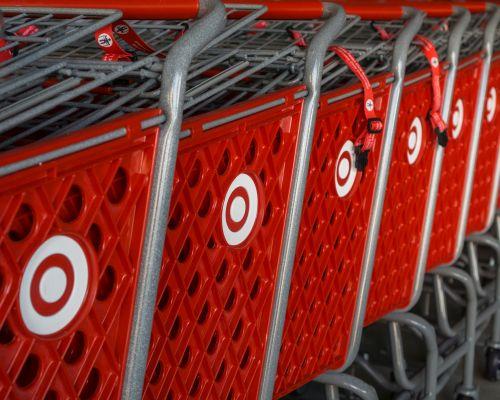

Target stores across the country remain open to help consumers shop for essential products during the coronavirus outbreak, but the retailer is reducing opening hours and offering specific shopping hours for vulnerable shoppers.
Beginning March 18, all Target stores will close by 9 p.m. local time daily, which will provide workers additional time for cleaning and restocking each day. Target is closing all Target Cafés, Pizza Huts, Snack Bars, Beverage Bars, Starbucks seating areas and condiment stations in stores.
In addition, the retailer announced that it will introduce a dedicated shopping hour every Wednesday morning for vulnerable shoppers. Target will reserve the first hour of shopping each Wednesday at stores nationwide for elderly and those with underlying health concerns. The retailer is encouraging other consumers to plan their shopping trips around this timeframe.
“Families are counting on Target for critical supplies during this challenging time, and we’ll continue to do all that we can to keep our stores open. For weeks, we’ve been responding to the impact of the coronavirus by taking care of our team, rigorously cleaning our stores and helping our guests find the food, medicine and other essentials they need for themselves and their families,” said Brian Cornell, Chairman and CEO of Target. “As our team continues to adapt to the country’s fast-changing needs, we’re announcing plans to reduce our store hours and offer dedicated shopping hours for vulnerable guests. We’ll also maintain limits on select products and would ask guests to purchase only what they need so there’s enough supply to accommodate this increased demand.”
Target is also adding payroll hours to support more rigorous cleaning routines, including ensuring guest-facing surfaces like checklanes and touchscreens are cleaned at least every 30 minutes. The retailers has moved to leveraging its supply chain to prioritize and fast-track the flow of products that are in highest demand across key categories, including cleaning products, paper products, food, over-the-counter medicine and baby products. It is also making back-up care available for all U.S. employees by waiving eligibility requirements, copays and other program details to ensure employees with caregiving needs can take care of their families during this time.

